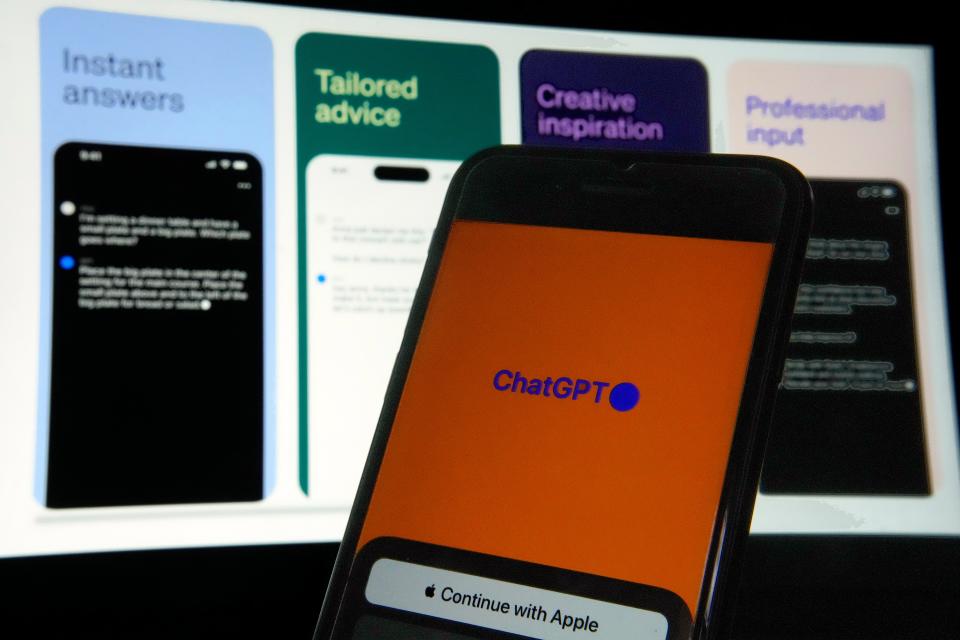Retired engineering dean: Urgent steps needed to mitigate catastrophic potential of AI
- Oops!Something went wrong.Please try again later.
In historical terms, not many topics have attracted as much attention as artificial intelligence has in the past year. Catastrophic predictions by experts in this revolutionary field have propelled them to urge governments and technology corporations to urgently put in place regulations and guidelines to ensure that pernicious effects of AI are avoided.
Geoffrey Hinton, “the godfather of AI,” recently made headlines as he left Google after a long association so he could sound the alarm about AI’s ability to outsmart humans and spawn devastating problems for mankind’s existence. Sam Altman, CEO of ChatGPT maker OpenAI, appeared before the U. S. Congress in May and articulated the same concern. He has recently embarked on a whirlwind tour of Asian and European countries to share his anxiety regarding AI and recommend urgent action in his meetings with political and technical leaders there.
Altman is one of the dozens of top experts and industry leaders to warn about the existential threat to humanity presented by AI in the next five to 10 years. They strongly feel that “mitigating the risk of extinction from AI should be a global priority alongside other societal-scale risks such as pandemics and nuclear war.”
JU law dean: The classic conundrum presented by ChatGPT, especially in academia
More: AI firm to map Jacksonville inch-by-inch. How might its findings affect homeowners' bills?
Letters: Why won’t Gov. DeSantis talk about his Navy service at Guantanamo prison?
This also reflects the view of a large number of participants in the Yale CEO Summit in June.
In May top U.S. and European officials met in Sweden to discuss oversight of AI and pledged to help establish voluntary codes of conduct. The European Union plans to place new requirements on high-risk AI in socioeconomic processes, the government use of AI and the regulated consumer products with AI systems.
Unfortunately the U. S. Congress, despite dire warnings, has been reluctant to come up with needed legislation for fear of alienating key corporations. Not surprisingly, some prominent U.S. corporations have expressed reservations about the drastic steps that the European Union has decided to implement.
The rise of AI has led many economists to issue stern warnings regarding our labor market. As many as 300 million jobs around the world could eventually be automated, according to Goldman Sachs. Some 14 million positions could disappear in the next five years alone. Even the jobs that survive will quite possibly not look much like the jobs of today.

Other potentially harmful outcomes include social surveillance (gathering data on citizens’ activities, relationships and political views), widening socioeconomic inequality, autonomous weapons powered by AI, financial crises brought about by AI algorithms and ransom/extortion threats through manipulation of voice and photos.
The beneficial impact of AI technology in the past decade is manifest in smartphone photos; facial recognition software; numerous medical applications, such as analyzing MRI scans, spotting lung cancer or managing mental health issues; understanding by farmers of crop yields; popular apps like Google Maps; use of speech recognition to translate words from one language to another; advances in social networks (Facebook, Instagram, Twitter, Amazon’s Alexa, Apple’s Siri and Google Assistant); and creating musical compositions or paintings.
Inevitably, AI technology is expected to bring more opportunities in jobs and industries that weren’t previously possible. Thus, one of the most promising aspects of AI is expected to be our entry into a golden age of human possibility, technological development and economic growth.
The above-stated amazing AI-related progress notwithstanding, the potential for destruction of the societal structure is a grave threat and must be avoided. It is imperative that the world develop national and international regulations for AI without delay. The creation of organizational standards for applying AI, making it part of company culture and discussions — as well as infusing humanities perspectives in technology development — are part of this all-important process.

Suresh Chandra, Ph.D., is professor emeritus and former dean of the College of Engineering at North Carolina A&T State University. He lives in Ponte Vedra.
This guest column is the opinion of the author and does not necessarily represent the views of the Times-Union. We welcome a diversity of opinions.
This article originally appeared on Florida Times-Union: Threats presented by AI may be greater than benefits, leaders must act

